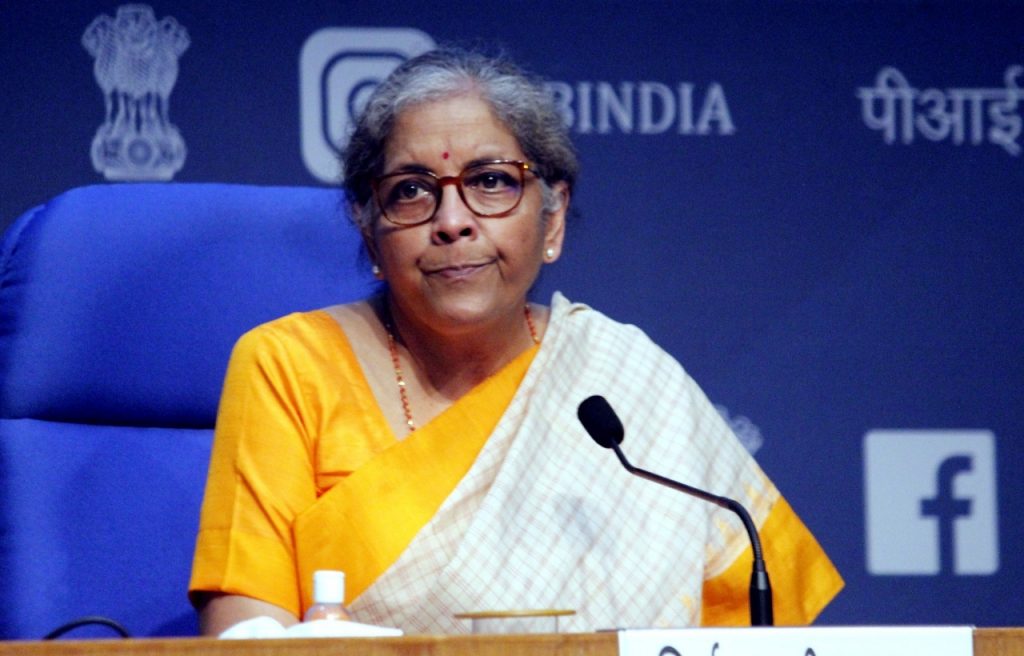Bengaluru (Aryavarth): Union Finance Minister Nirmala Sitharaman underscored the transformative impact of the Goods and Services Tax (GST) on India’s financial landscape in a speech on Saturday. She commended the tax reform for reducing rates and heightening tax buoyancy for both state and central governments, dispelling misgivings about its effectiveness.
“GST has done justice to the consumers by bringing the rates down compared to the previous regime. Before GST was introduced, India’s indirect tax system was fragmented, where every state was effectively a distinct market for the industry as well as the consumer. GST has brought in greater tax buoyancy, as a result of which, more than your GSDP growth, your tax collection is growing. Therefore, both the centre and the states are getting benefits. We have to dispel the myth that states are losing out after joining hands for GST. Today, no state suffers after GST, and that is despite COVID,” Sitharaman outlined.
Sitharaman refuted criticisms levelled by the opposition, which labeled GST as the ‘Gabbar Singh’ tax and claimed that it had increased financial strain on citizens. She clarified that GST has notably eased the common citizen’s tax burden, evidenced by substantial reductions in tax on everyday items.
“On hair oil, toothpaste, soaps, perfumes, and detergents, the average Pre-GST tax burden was almost 28 per cent, which was brought down to 18 per cent under GST. These are tangible numbers. So, somebody were to say, GST actually has brought in a burden, and I don’t want to repeat the full expression, but it is a fact that it is being called the ‘Gabbar Singh’ tax, which is a shame because this country should know. A step like GST actually brought relief to the common citizen,” Sitharaman said.
In addition to these, the Finance Minister pointed out that numerous essential goods and services have been exempted from GST entirely for the public’s benefit. This includes staple food items like rice, wheat, and flour sold unpackaged, as well as vital services like healthcare, education, public transportation, and agricultural services.
The Ministry of Finance also announced that India’s gross GST revenue collection in June surged to Rs 1,61,497 crore, a robust 12% increase from the same period the previous year. This constitutes the fourth time the gross GST collection has surpassed the Rs. 1.60 lakh crore benchmark.
“The gross GST revenue collected in the month of June, 2023 is Rs 1,61,497 crore of which CGST is Rs 31,013 crore, SGST is Rs 38,292 crore, IGST is Rs 80,292 crore (including Rs 39,035 crore collected on import of goods) and cess is Rs 11,900 crore (including Rs 1,028 crore collected on import of goods). The government has settled Rs 36,224 crore to CGST and Rs 30,269 crore to SGST from IGST. The total revenue of Centre and the States in the month of June 2023 after regular settlement is Rs 67,237 crore for CGST and Rs 68,561 crore for the SGST,” the Ministry disclosed.
Sitharaman’s remarks echo the government’s steadfast commitment to GST as a cornerstone of India’s financial framework. Amid opposition criticism and the challenges of the ongoing COVID pandemic, these results signify the undeniable strides made in transforming India’s indirect taxation system into a unified, efficient, and equitable structure.
